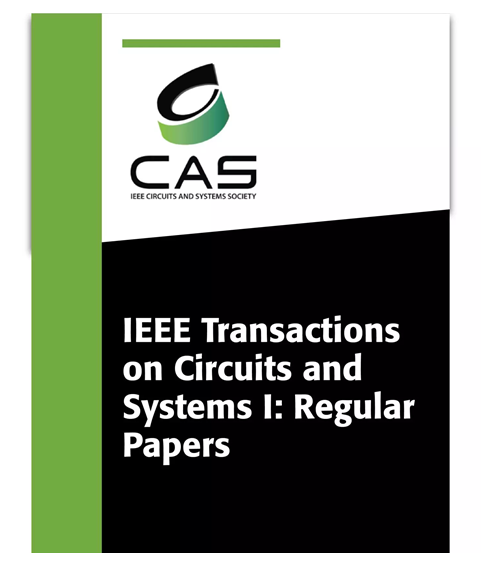概率逻辑控制网络的可观察性与可重构性验证系统分析
IF 5.2
1区 工程技术
Q1 ENGINEERING, ELECTRICAL & ELECTRONIC
IEEE Transactions on Circuits and Systems I: Regular Papers
Pub Date : 2025-04-08
DOI:10.1109/TCSI.2025.3553463
引用次数: 0
摘要
可观测性和可重构性是现代控制理论中的两个基本问题,在状态估计和观测器设计中都具有重要意义。现有的验证概率逻辑控制网络(PLCNs)的可观测性和可重构性的结果具有指数复杂度。本文提出了一种验证PLCNs可观测性和可重构性的新方法,可以大大降低计算复杂度。具体来说,这个问题分三个不同的步骤来解决。首先,在状态对空间划分的基础上,建立了可观测性验证系统;其次,揭示了可观测性验证系统的镇定性与PLCNs的可观测性之间的等价性,并建立了求解PLCNs可观测性的新准则。在此框架下,讨论了计算复杂度。第三,揭示了PLCNs的可观测性与可重构性之间的关系,并建立了一些新的准则来解决PLCNs的两类可重构性问题。最后,以生物网络细胞凋亡网络为例,说明本文所提方法的可行性。本文章由计算机程序翻译,如有差异,请以英文原文为准。
Observability Verification System Analysis for Observability and Reconstructibility of Probabilistic Logical Control Networks
Observability and reconstructibility are two fundamental issues in modern control theory, which are important in both state estimation and observer design. The existing results for verifying the observability and reconstructibility of probabilistic logical control networks (PLCNs) have exponential complexities. This article presents a new approach to verify the observability and reconstructibility of PLCNs, which can greatly reduce the computational complexity. Specifically, the problem is tackled in three different steps. Firstly, based on the division of the state pair space, an observability verification system is established. Secondly, the equivalence between the stabilization of the proposed observability verification system and the observability of PLCNs is revealed, and a new criterion is established to solve the observability of PLCNs. Under the framework, the computational complexity is discussed. Thirdly, the relationship between observability and reconstructibility of PLCNs is unveiled, and some new criteria are established to solve two kinds of reconstructibility problems for PLCNs. Finally, an example of a biological network, apoptosis network, is presented to demonstrate the feasibility of the methods proposed in this article.
求助全文
通过发布文献求助,成功后即可免费获取论文全文。
去求助
来源期刊
CiteScore
9.80
自引率
11.80%
发文量
441
审稿时长
2 months
期刊介绍:
TCAS I publishes regular papers in the field specified by the theory, analysis, design, and practical implementations of circuits, and the application of circuit techniques to systems and to signal processing. Included is the whole spectrum from basic scientific theory to industrial applications. The field of interest covered includes: - Circuits: Analog, Digital and Mixed Signal Circuits and Systems - Nonlinear Circuits and Systems, Integrated Sensors, MEMS and Systems on Chip, Nanoscale Circuits and Systems, Optoelectronic - Circuits and Systems, Power Electronics and Systems - Software for Analog-and-Logic Circuits and Systems - Control aspects of Circuits and Systems.

 求助内容:
求助内容: 应助结果提醒方式:
应助结果提醒方式:


